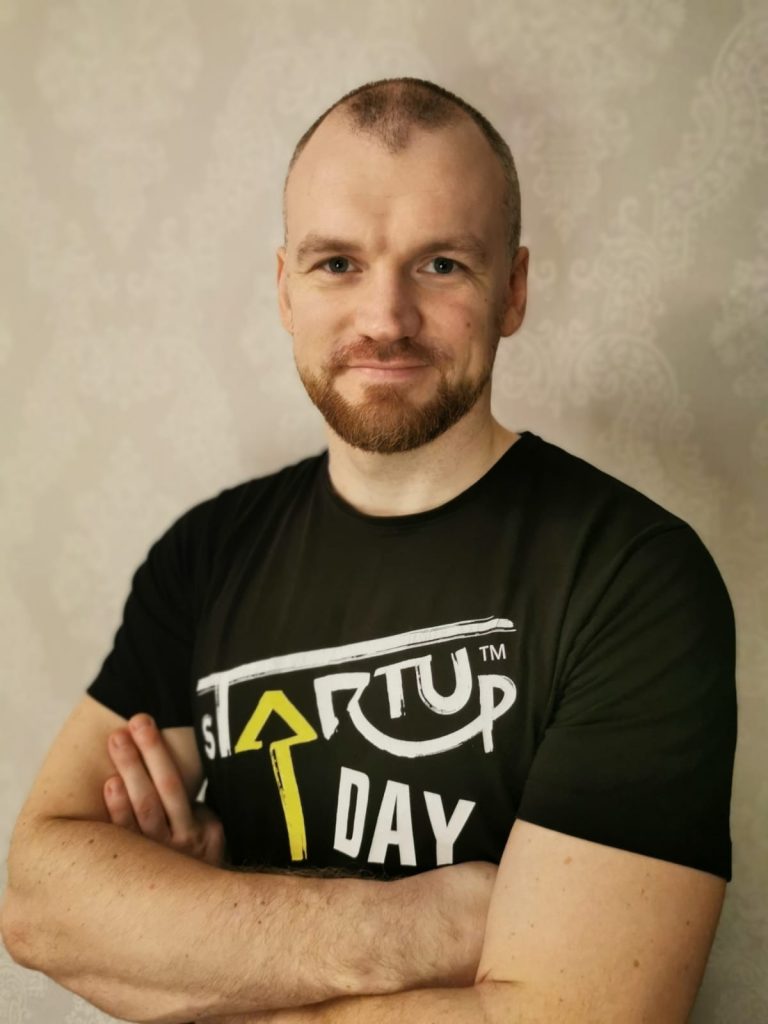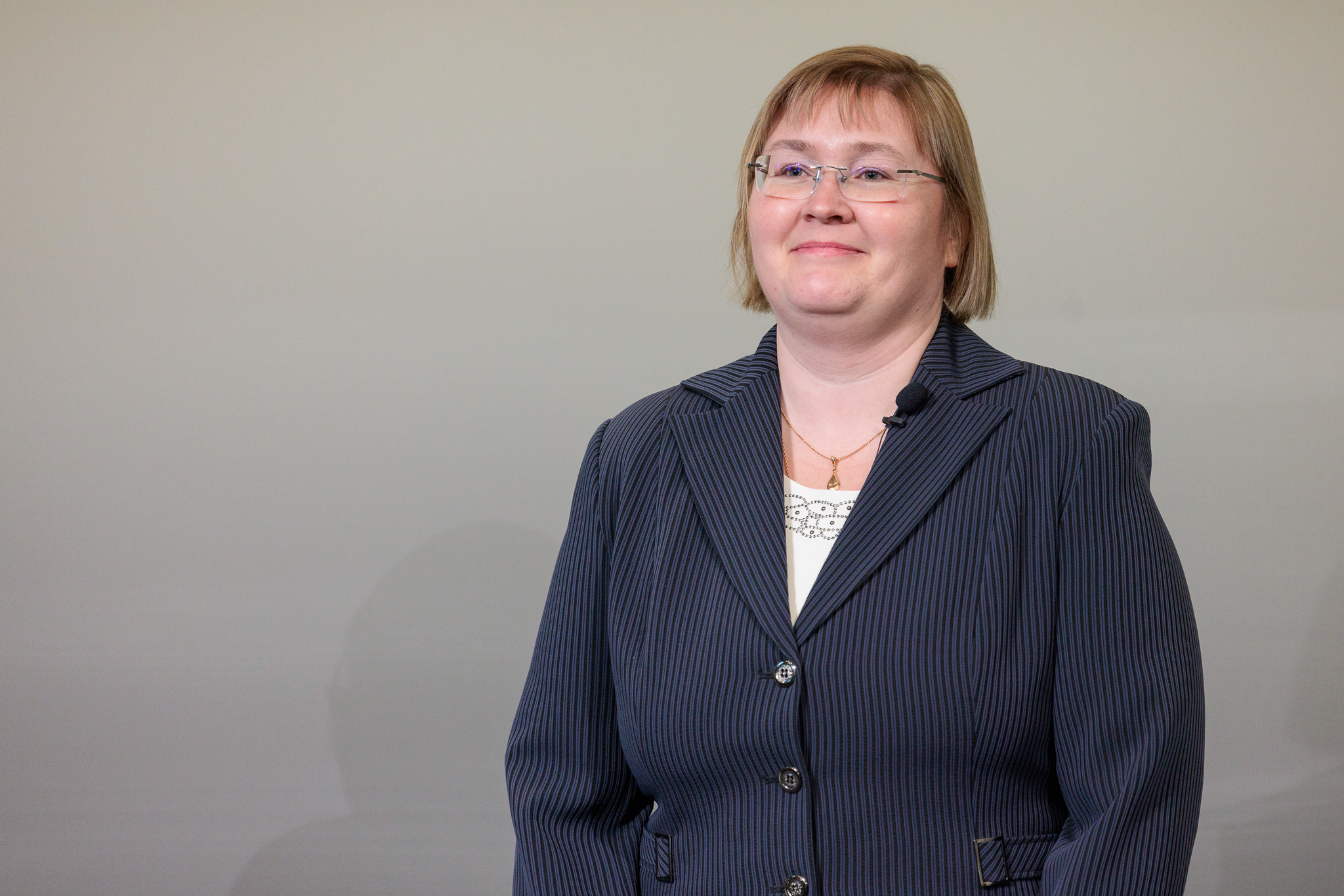When I was asked whether I would be willing to write a story about why somebody like me should decide to come to study at the University of Tartu Institute of Computer Science, I immediately agreed. In fact, I was almost about to suggest sharing my positive experience with “Conversion Master in IT” myself, but the Estonian in me won.

When we first look at the reasons the leaders of the programme give for choosing this curriculum, the emphasis is on perfectly logical reasons, starting from developing digital competencies alongside other competencies and giving the “smart customer’s” perspective to launching start-ups and getting certificates. Writing this blog post gives me the freedom and opportunity to confirm or refute such reasoning or expand it slightly from a different perspective, and that is what I intend to do.
In terms of education and work experience, I have a background in social sciences and economics. Still, for years, I have been looking for a completely different discipline to complement my skills and knowledge. To tell you the truth, the field of social sciences, with its philosophical questions, infinite perspectives and discussion opportunities, has even started to irritate me. At the same time, STEM (science, technology, engineering and mathematics) in their truest form are too abstract for me and, to be honest, in most cases also imperceptibly complicated. This is why “Conversion Master in IT” or other similar conversion-type curriculum offers just the perfect transition for connecting different disciplines.
In theory, it seems like it could work, and that is what I thought when I started studying, but now let’s get more specific and see how the study experience has actually been and why it even exceeded my expectations.
Curriculum tailored to one’s needs. Most of the courses taught are specifically designed for this curriculum or adjusted from existing courses. This is very important as the students have different backgrounds and very few have such a good existing IT knowledge to pass “real” IT courses. At the same time, every student who wants a greater challenge and feels the need to go in-depth with, for example, programming, data analysis or information security, will always have the opportunity to take more advanced courses. But don’t get me wrong – several compulsory courses in the curriculum are quite enough of a challenge for people who have only briefly dealt with IT in the past, and slacking is not an option. But that’s how I like it – if it’s difficult and requires hard work, I know I’ll learn the most.
This takes me to the next reason to consider this curriculum – it is perfect for a person who likes challenges and wants to develop skills that differ significantly from previous experience. For example, I have always been interested in how computer programs work and how it all looks from the inside. As I mentioned, my previous education and professional experience have been in rather “soft” disciplines, so it is highly refreshing to study something related to sciences, where the power is in data, and everything is based on causal interactions. When solving a programming task, there are essentially two options – the program either works or it does not, it delivers the desired output or it does not. There’s no intermediate option. Assignments like these have robbed me of hours of sleep and taken quite an effort, but in a good way. In a softer discipline, if you need to write an essay, for example, you can still put down something, even if you don’t really master the topic, send it off and get it done. The result may be ugly, but it’s done. This would not work in data analysis and programming, for instance.
However, the concreteness that contrasts with this soft and “it depends” approach leads me to another reason to be very happy that I chose this specialisation – people at the Institute of Computer Science. Starting with teaching staff, I have had the opportunity to meet many excellent people who are refreshingly concrete. Perhaps an example is again the best way to illustrate this. When we were discussing about how many interviews we should do with the target group representatives to get sufficient input to move on with the development of a software product, the teaching staff member gave us a very concrete response – six to eight is enough. The message was that fewer interviews is rarely enough, and it is even rarer that conducting more interviews would lead to a significant amount of useful input. In such a situation, I had become used to a lengthy argumentation that “everything depends” and each situation is different, so such a concrete attitude was very cool. I encourage all teaching staff members to be less “scientific” from time to time and not only present the views that are theoretically the most correct, but to highlight what is, in short, simply the most reasonable.
Speaking of people, I also have to mention my fellow students. We have a very diverse group, which has led to several exciting new contacts, but what I probably like most is that all students in this curriculum are here because they want to. They are not after a diploma to kick-start their careers but really want to learn new and necessary skills during their studies. Students with such an attitude have a very different motivation to study, they do things that are interesting and reasonable, and they do it to the maximum.
And from the importance of doing what is reasonable, I arrive at the last reason why I can confidently recommend “Conversion Master in IT” to all my friends and acquaintances — flexibility in the truest sense of the word. This reason is not so much to do with content but rather the form of the programme. But to be honest, if this form did not work, it would have been very difficult for me to complete the curriculum at a normal pace. Participation in the courses has been made as comfortable as possible for learners who have family and work obligations. Most of the studies can be done at a distance and, in many cases, at a convenient time. Being present in the lecture hall will naturally bring the best result, but during periods when my personal schedule was very tight, I could watch video lectures and do the assignments of practical classes at night. For me, it is always better to have the opportunity to fully focus on the course after the end of the working day, instead of constantly answering work emails while sitting in a lecture. In addition, this flexibility also significantly reduces the stress associated with reconciling studies and tight schedules.
I am sure that the completion of the curriculum “Conversion Master in IT” has boosted my motivation to face all sorts of new challenges, and there is no doubt my career will be inextricably linked to information technology in the future.
